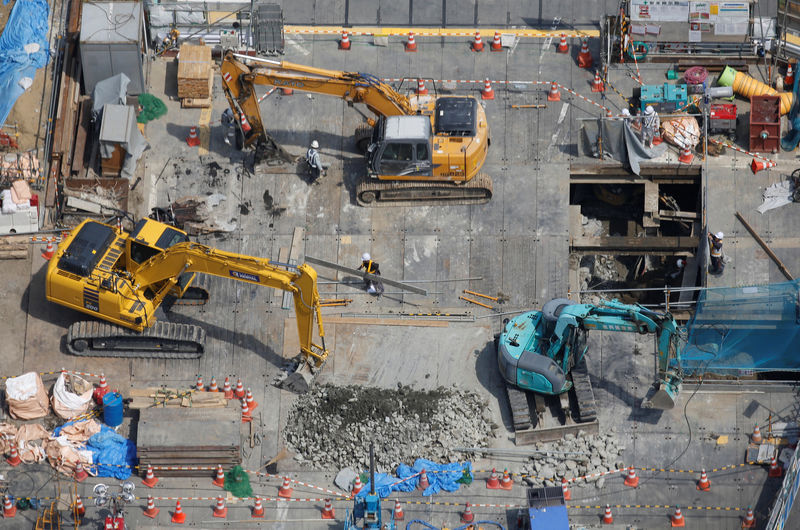By Stanley White
TOKYO (Reuters) - Japan's core machinery orders tumbled in April by the most in two years, partly due to earthquakes in a southern manufacturing hub but raising the risk that business investment will remain weak for most of the year.
The 11.0 percent month-on-month fall in core orders was much deeper than the median estimate for a 2.3 percent decline in a Reuters poll of analysts.
It also marked the biggest decline since May 2014. In March, core orders rose 5.5 percent.
Any further delays in capital expenditure raise pressure on Prime Minister Shinzo Abe's government, which will announce more economic stimulus measures this autumn in an attempt to recharge a largely disappointing economic campaign.
"This is a result of the Kumamoto earthquakes, but China's economic slowdown is also having a negative impact," said Daiju Aoki, economist at UBS Securities.
"Capex fell in the first quarter. The second quarter looks weak and this could extend into the third quarter. This will affect the size of government stimulus and monetary easing."
On April 14 the first of several strong earthquakes struck Kumamoto Prefecture in southern Japan, damaging houses, causing landslides and halting production at electronics and car parts factories.
Many companies were able to quickly resume production, but the April machinery orders data suggests the damage to business investment was deeper than expected, Aoki at UBS said.
Compared to the previous month, orders from manufacturers fell 13.3 percent, while orders from the services sector fell 3.9 percent, the data showed.
Compared with a year earlier, core orders, a highly volatile data series regarded as a leading indicator of capital spending, fell 8.2 percent in April, more than a median estimate for a 2.3 percent annual fall. Policymakers were counting on an increase in capital expenditure to fuel gains in productivity, create new jobs and increase wages, but hopes have gradually faded as data has shown that corporate profit growth has peaked.
"Earnings have been falling from last year, which is leading companies to but the breaks on their investment plans," said Hiroshi Miyazaki, senior economist at Mitsubishi UFJ Morgan Stanley (NYSE:MS) Securities.
"If the government's stimulus policies contribute to improving the economic outlook, this could get companies investing again."
Since taking office in late 2012, Abe's government has offered tax breaks to encourage capital expenditure and lobbied Japanese companies directly to boost spending.
Japanese companies investment needs are high because the country's capital stock is ageing. Funding costs are also low due to ultra-easy monetary policy.
Still, it has been difficult to maintain capital expenditure gains due to worries about a rising yen and a shrinking domestic market, economists say.
